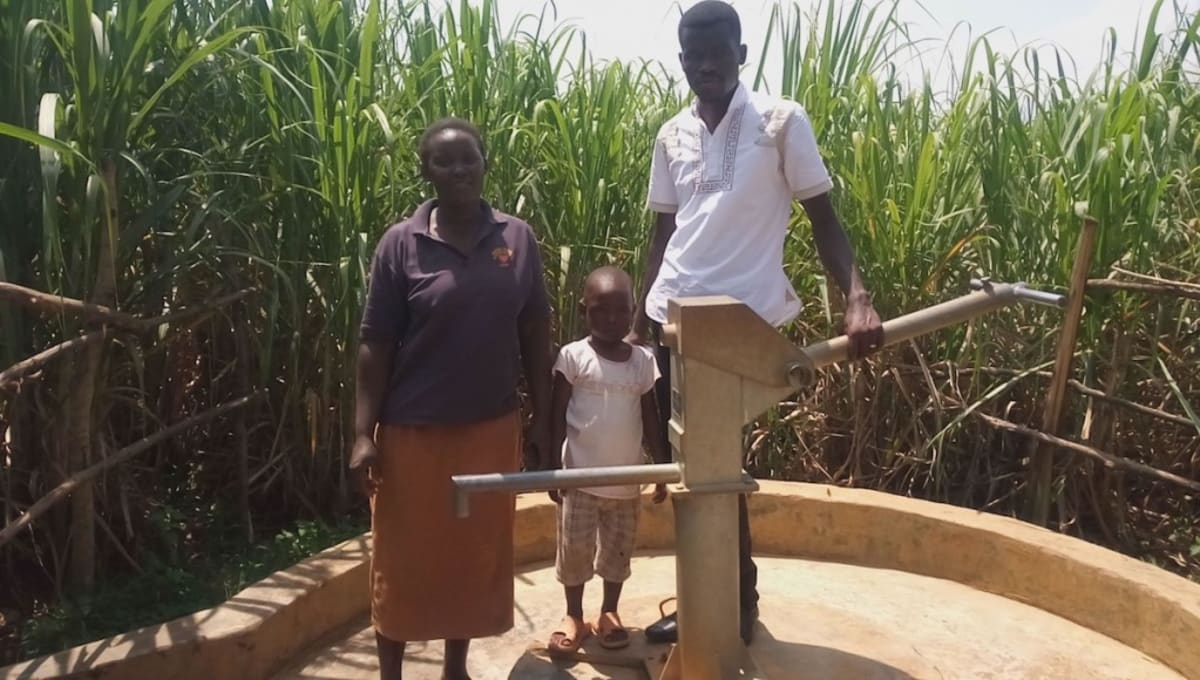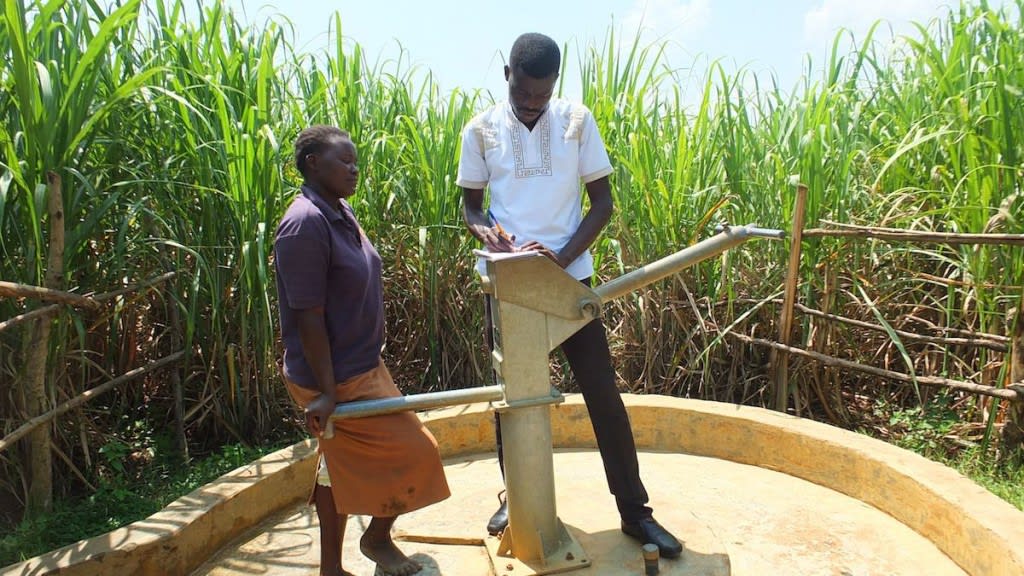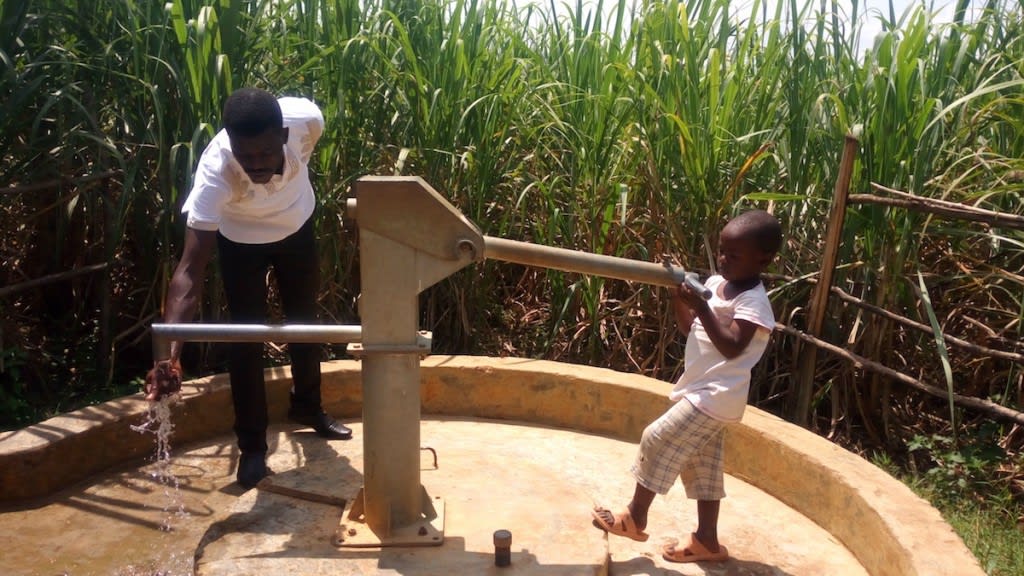This project is a part of our shared program with Safe Water and Sustainable Hygiene Initiative (SAWASHI). Our team is pleased to directly share the below report (edited for clarity, as needed).
Welcome to the Community
Sharambatsa Community is situated in the center of Matsakha Village, and is home to 300 people from 25 different households. The community is surrounded by sugarcane plantations on all sides. Apart from sugarcane, Sharambatsa farmers also plant bananas, maize, beans, and other kinds of vegetables that when sold, provide their daily bread and income. Most houses are thatched with grass. In this community men are most concerned with raising school fees for their children and being there as family leaders.
For a normal day, women wake up early in the morning to till their small farms and then walk to fetch water for domestic use. Due to the high poverty level in this community, most children can't afford to attend school. Instead they will help their parents earn money, and often get married at a very young age.
Water Situation
Kenya Finland Company installed a hand-dug well for this community in year 1989. However, the well was given with no warranty. Soon after, the pump was vandalized. Locals didn't know how to source the replacement parts or even repair the pump if they had the means. They felt there was no other option but to remove the pump and access the water inside by another means. Today, women and children use a bucket tied to the end of a rope to fetch their water.
When the rope and bucket contraption isn't being used, it sits on the ground. During our first visit, we immediately noticed that this plastic container and the rope were very dirty. Each time people use it to fetch water, there's no doubt they're rinsing a little of that dirt off in the well water. But even if they regularly cleaned the bucket, the absence of a pump and complete well pad is allowing contamination to wash back into the unprotected well's water. Water from this source is used for cooking and drinking, though community members often complain of typhoid and diarrhea.
Sanitation Situation
Most households have pit latrines made of mud with cloth or banana leaves for doors. Some families have helpful tools like dish racks and clotheslines, while others do not. No hand-washing stations were observed. Relatively speaking, Sharambatsa community members have some knowledge about good hygiene and sanitation practices. The training facilitator has thus determined that sessions will be helpful in fortifying what some families know, while teaching the others what they didn't. Unfortunately, even if one person chooses not to use a latrine or wash their hands, it can affect the entire community. Local farmer Ayan Kasiti says that "due to bad practice of hygiene and sanitation in our community, we are affected with waterborne diseases that cost us a lot in treatment." Training will teach participants about the chain of contamination and how to prevent the spread of germs - to put a kink in the chain!
Plans: Hygiene and Sanitation Training
Community members will be invited to attend hygiene and sanitation training for three days. The facilitator will use the PHAST (Participatory Hygiene and Sanitation Training) method to teach the following topics:
- Disease transmission routes
- Creating barriers to disease
- Proper food preparation and storage
- General household hygiene
- Forming a strong water user committee
After a tour of Sharambatsa and interviews with community members, the facilitator decided these would be the most important topics on which to focus their time.
Plans: Well Rehabilitation and Hand-Washing Stations
Two hand-washing stations will be delivered before training so that they may be used for demonstrations and practice. The community will also be taught about how to maintain the stations, filling them regularly and cleaning the containers. They will also need to keep an eye on the amount of cleaning agent (soap or ash) that is available.
The well is located on public property central to most in Sharambatsa. Second, the water level has never failed the community through even the dry seasons. Third, local leadership is highly involved in and excited about this water project. Upon our first visit, all of the leadership was present to give us a warm welcome. Leadership has promised to encourage each family to fully participate in both training and project construction. They have also agreed to fill a seat on the water user committee to ensure that the rehabilitated well can serve the community for a long, long time. Upon hearing of these three important factors and after meeting with Sharambatsa families and leadership, we have decided that this well is a wonderful candidate for a rehabilitation project.

 Protected Dug Well
Protected Dug Well






















